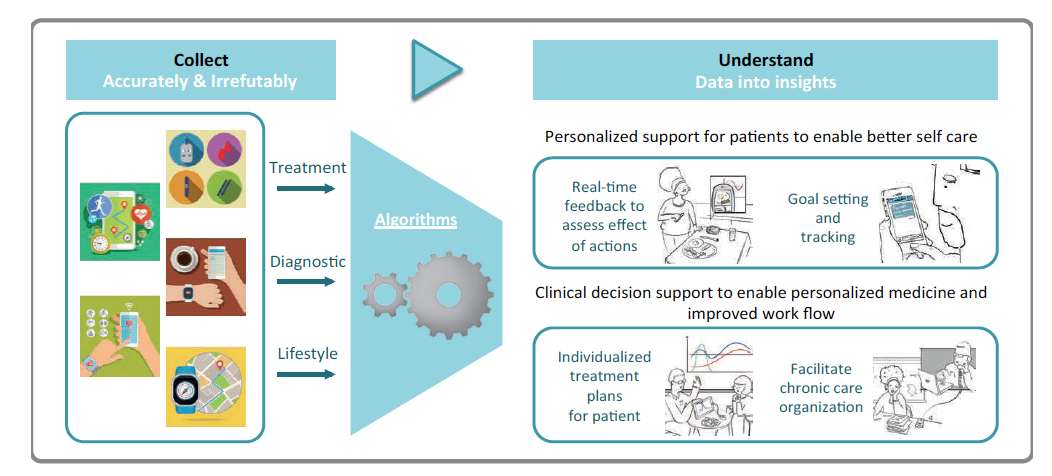Interconnected diabetes management system in EU populations
Class IDM will run tests to show the effectiveness of a prototype system that helps people with diabetes manage their health. Using smart devices and a phone app, the system collects data on users’ diet, activity and treatment, and then provides patients and their care givers with feedback and analysis to suggest lifestyle changes and enable personalised care.
Origins
Type 2 diabetes (T2D) is a growing burden for populations and healthcare systems across the world. Impacts of the multiple parameters of this complex chronic disease remain difficult for patients to analyse. ClassIDM addresses the challenge of T2D with a motivational approach supported by actual collected data, to help patients adapt their lifestyle, improve therapeutic education, and positively and durably impact their condition.
Team
The ClassIDM consortium gathers high-level academic and industrial members, who bring critical and complementary expertise to run a complex telemedicine system assessment effort. BD provides its prototype integrated disease management (IDM) components, supported by BULL’s cloud infrastructure, while UGA and PROFIL are in charge of the practical and scientific aspects of involving patients in a clinical study.
The project
The ClassIDM solution is an integrated system enabling T2D patients to better manage their disease with the support of a data collection and processing ecosystem, a data visualisation platform and a portal for clinicians. The aim of the project is to show the effectiveness of the solution, through studies that provide patients with prototype smart devices that capture treatment and daily activity data.
Patient data will be transferred to the cloud for processing, and then shared back to the patients and their care givers via insightful, real-time dashboards that can suggest adjustments in the patients’ behaviour and treatment.
Based on contextual research, the solution will be tailored to fit specific population needs. EIT Health supports the partnership in conducting component solution refinement, designing the study and complying with mandatory regulations regarding evaluation within multistep clinical studies.
Clinical studies will be rolled out in France and Germany, to assess impact in two different healthcare environments. The results will be scalable to other populations across the EU.
Impact
ClassIDM aims to improve the clinical conditions of people with T2D by improving the awareness of their disease, so that the patients and their care givers can manage it better. By giving patients more control over their condition, the solution reduces the burden on the health care system. The preemptive approach can also prevent complications, thereby preventing reduced quality of life for patients and increased costs for payers.
Why this is an EIT Health project
This project is attractive to EIT Health as it is designed to use innovation to empower patients to manage their own health. The project is also aligned with the EIT Health Focus Area of “Bringing Care Home” because it tests the effectiveness of a solution that works in a patients’ home, providing constant monitoring of health parameters that otherwise would have to be measured in a doctor’s office.
Members

CLC/InnoStars: France
Partner classification: Education, Research, Tech Transfer, Clusters, Other NGOs
The UGA in Grenoble is a leading University of Science Technology and Health. Within 80 multidisciplinary laboratories, the UGA is developing outstanding research at national and international level. The UGA offers a wide range of training courses, from bachelor to doctorate, in close connection with the socio-professional environment to promote the integration of its students.
Université Grenoble Alpes (UGA)
621 Avenue Centrale, 38400 Saint-Martin-d'Hères
Key Activities in Research and Developement
Biomedical engineering, Life science, Social sciences /health economics
Key Activities in Corporate Innovation
Pharma, Med Tech, ICT, Diagnostics, Imaging, Nutricion
Key Activities in Business Creation
Incubation, Technology Transfer, Business coaching
Key Activities in Education
Entrepreneurship training, Technical faculties, Medical faculties, Healthcare professional education/training
